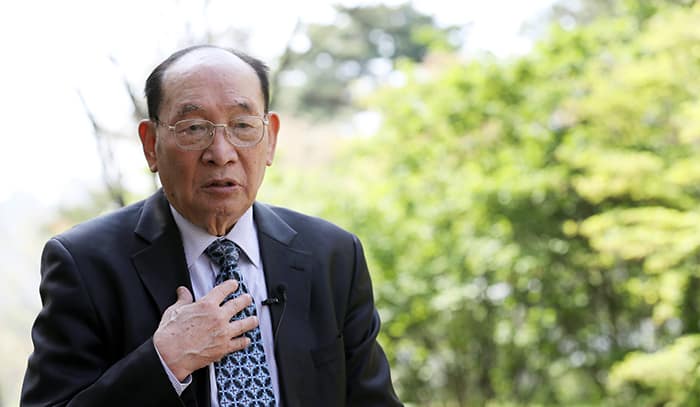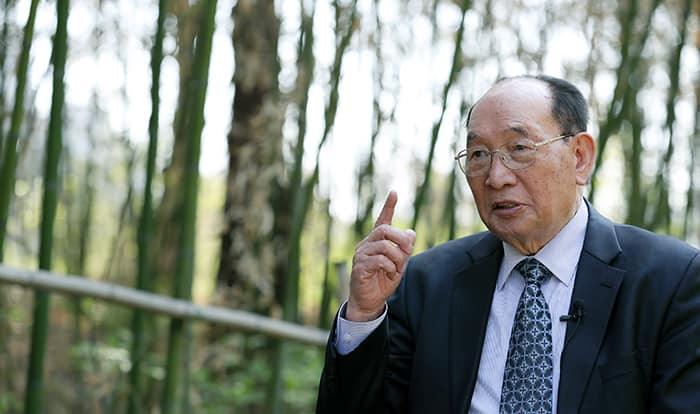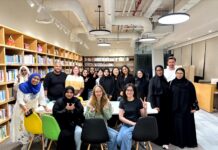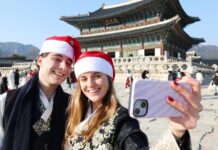
Seo Kyu Hoe, who has been separated from most of his family members since 1951, says that people like him are placing a lot of hope on the upcoming Inter-Korean Summit, during an interview at the National Museum of Korea on April 16.
By Lee Hana and Park Hye Ri
Photos = Jeon Han
Seoul | April 16, 2018
It was in Rakseon-li in Onjeong-myeon Village, Yeonbaek-gun County, in Hwanghae-do Province.
Though close to 70 years have passed since he left his hometown, Seo Kyu Hoe, a displaced Korean from the North, can recite his old address by heart. He turned 82 this year.
Seo saw his home for the last time on Jan. 4, 1951, seven months after the Korean War broke out. This is a moment now known as the January 4th Retreat, when North Korean armies captured Seoul from the South Korean and U.N. forces. Seo, the third of seven children, was 14-years-old.
“Mother told us to take refuge somewhere for just one month, away from the bombs and the guns. So my older brother and sister and I fled, not fully aware of what was happening. With the two sacks of rice that Mother gave us, we crossed the river to Gyodong Island in Ganghwa County with a crowd of other adults. We haven’t been able to return since,” he recalled.
Seo hasn’t been able to see any of his family members since he left his hometown. During the years he spent subsisting on U.S. relief supplies and studying for his qualification exams, and while he delivered letters to pay for his college education, the only news that he got was that his siblings had been forced to relocate to Bukcheong-gun County, Hamgyeongbuk-do Province, way up north.
“We’ve heard that my brother’s eldest son still lives in our hometown of Yeonbaek. If I ever get a chance to meet my siblings again, I’d apologize to them 1,000 times over for not having been there for them. This is my last dying wish,” said Seo, placing his time-worn hand on his chest.
Seo has been a leader in his community of displaced Koreans, serving as chairman of the Yeonbaek-gun County Committee and vice-chairman of the Hwanghae-do Province Committee. Korea.net sat down with him on April 16 at the National Museum of Korea to hear about his community’s hopes for the upcoming 2018 Inter-Korean Summit.

Seo Kyu Hoe, former chairman of the Yeonbaek-gun Committee, says that many displaced Koreans hope that the 2018 Inter-Korean Summit will help set up a permanent reunion center for separated families.
– What are your hopes for the 2018 Inter-Korean Summit?
As a displaced Korean, I’m happy that the summit is taking place and I have high hopes for any potential outcome. I’d like to be reunited with my family, and as someone who wishes only the best for our country, I’m filled with promise. I hope that President Moon Jae-in will take the wheel and steer us toward the best possible result.
– What kind of results do you wish to see?
Two-thirds of separated families have already had to take their last breath, full of regret. Those of us who remain have between five to 10 years left to go.
On behalf of all separated families, who have had to spend a lifetime of tears and regrets, I ask President Moon Jae-in for three wishes. The first is for a permanent reunion center to be set up for us separated families. Second is to grant us a visit to our hometown, and, third, is to allow us to pay our respects to our ancestors.
– Does this reflect the opinion of most displaced Koreans and separated families?
We’ve spent our lives shedding endless tears. We’ve been homesick for as long as we can remember, and even after we die, we won’t be able to go back. I believe every displaced Korean would have felt such emotions. It’s a tragedy that should never be repeated in human history.
– It seems your hopes for the summit are as high as the longing runs deep.
We have nowhere to go, even after death. As displaced Koreans, we dread celebrating national holidays like Chuseok Mid-Autumn Festival, because we have no family to visit, and nowhere to be. We have spent decades hiding our tears. This has been our reality.
Of course, there is the issue of denuclearization. However, from the point of view of us displaced Koreans, finally being able to reunite with our families and having the chance to visit our homes and pay our respects to our ancestors, that would be a huge accomplishment. For us, who’ve spent a lifetime of sorrow, this would be our gift. This is our last duty, our last assignment.
*According to the Committee for the Five Northern Korean Provinces, there are estimated to be around 750,000 first-generation displaced Koreans residing in the South. With the inclusion of people in the second-, third- and fourth-generations, there are estimated to be around 800,000 displaced Koreans in total.
hlee10@korea.kr























